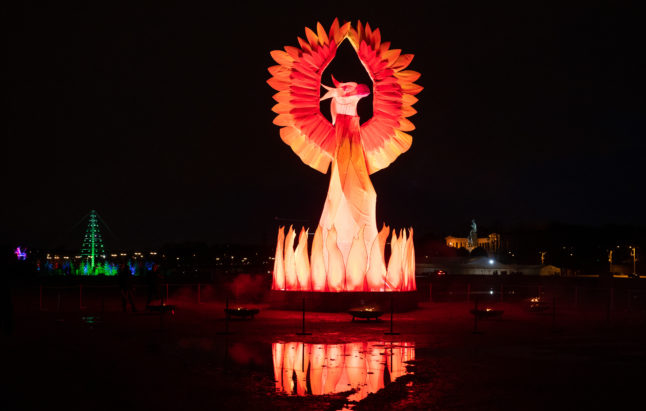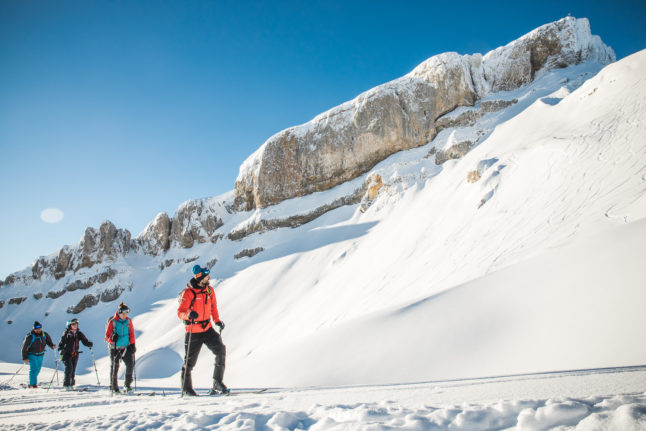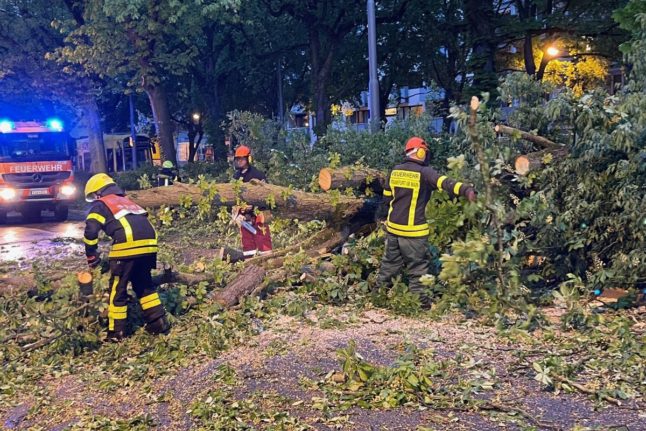When asked what the toughest thing is about adapting to life in Germany, most expats will mention the long, icy winters. This December, the mercury has already dropped into minus temperatures.
This can make the German winter feel like something of an endurance test. Seasonal Affective Disorder (SAD) is estimated to affect around a third of northern Europeans, and Germans are certainly no stranger to a case of the winter blues.
But if you’re already dreading the next three months of misery, it’s important to realise there are things you can do to make winter much more bearable. From embracing the festive season to concocting comforting beverages, these tips should help make the coldest months a little bit less dark.
1. Dress for the season
To master the art of winter, it’s important to first master the art of practical clothing.
The ability to dress for all weather conditions is a source of national pride for Germans: in fact, they go about picking their seasonal-wear with such specificity that it’s not unusual to hear categories of clothing like Übergangsjacke, a special “bridging” coat to tide you over from autumn to winter or winter to spring.
Though all of this can feel a bit intimidating, dressing for cold weather is really not that tricky – and once you’ve found a warm coat and a sturdy pair of winter boots, you’ll never go back.
One of the best tips for dressing for winter is to follow the onion principle and wear as many layers as you can. Thermal leggings and tops are an ideal base layer, followed by warm trousers, long-sleeved tops, knitwear and a decent coat that’s long enough to cover your legs.
Of course, a decent pair of gloves, a scarf and a hat are also essential when the temperature drops, as are thick socks and a hardy pair of boots.
2. Learn to cook German comfort food
Many of Germany’s traditional dishes are perfectly suited to cold winter days, when stodgy comfort food is a must.
If you’re stuck indoors on a frosty evening, it could be the perfect time to try your hand at a few German dishes, whether it’s a hearty lentil casserole, Käsespätzel or roast pork with dumplings and red cabbage.

A good place to start is to think of a German meal you’ve enjoyed in the past and see if you can find a recipe for it online. Once you perfect some of your favourite side dishes like Bratkartoffel (roast potatoes) and Sauerkraut, you can even start getting creative and inventing dishes from scratch.
Alternatively, check out some of our recent articles on the best German seasonal food for inspiration.
READ ALSO: The 10 heartiest German dishes to get you through winter
3. Enjoy some festive activities
Though it can be hard to find the motivation to get out and about, there’s absolutely no need to go into hibernation over winter. As the days get shorter and darker, numerous festivals and cultural events start springing up all over Germany – not to mention the Christmas markets.
At the start of December, Dresden holds its annual Stollenfest in homage to one of Germany’s most famous Christmas treats. Not only can you see masterful bakers at work, but you can also sample some of the delicious marzipan-filled cake washed down with a warming glass of Glühwein.
In Hamburg, an array of folk festivals – including the Winter Fair and the Dom Fair – kick off in winter time, drawing millions of visitors to the northern city-state. With food stalls, fairground rides, music and fireworks, the fairs have something for the whole family and are an ideal excuse to experience the romance of Hamburg harbour in wintertime.

If you’re nowhere near the north, don’t despair: Munich’s Tollwood Winter Festival runs for a full month during November and December. Here, you can catch music, circus and theatre performances or simply soak up the atmosphere and enjoy some delicious German street food.
Alongside the big events, getting out to your local Christmas market or to see a concert with friends can be a great way to beat the winter blues. We’ll keep you updated on all the best things going on each month around Germany.
4. Get out in the daytime
This may sound simple, but when the daylight hours are limited, it’s important to make the most of them. In the shortest days of December, it tends to get light around 7 or 8am, while the sun sets around 4:30pm, which means you’ll need to be strategic about when you get out and about.
One simple way to get some natural light and exercise is to bike to work each morning. It may seem unappealing on a chilly day, but you’ll warm up quickly once you get going and may enjoy it more than being crammed onto a bus with the other commuters.
Another option is to try and get out for a jog or a long walk on your lunchbreak, so you don’t find yourself accidentally missing the daylight hours while stuck at your desk. Or be sure to get out into the countryside each weekend for a rejuvenating hike followed by a hearty lunch.
5. Find your favourite winter sport
There’s a reason that winter sports are so popular in Germany. From the Harz mountains in the north to the Bavarian alps in the south, there are countless places to enjoy skiing and snowboarding when the temperature drops.
What’s more, enjoying a winter hobby can totally shift your perspective about winter. Instead of looking ahead with a sense of dread, you may find yourself getting excited about the start of the new ski season and counting the days until you can hit the slopes once more.

Not all winter sports need to be money or labour-intensive, either. In recent years, ice dipping has become a major trend, with adventurous types heading out to local lakes to lower themselves into the freezing water for a minute or two.
Though this may sound about as pleasant as a kick in the teeth, many ice-dippers say the natural high you get more than makes up for a few seconds of discomfort. Aside from energising you for the day ahead, a minute or so in cold water also delivers numerous health benefits, from boosting your immune system to protecting against Alzheimer’s.
READ ALSO: How learning to ski helped me shake off my German winter blues
6. Embrace Gemütlichkeit
Forget the Danish Hygge: in Germany, it’s all about Gemütlichkeit. This charming word encapsulates that feeling of being warm and cosy – especially on a cold day.
To get through this winter season, we recommend setting yourself up for maximum Gemütlichkeit. That might mean digging out some cosy blankets or knitwear from the cellar, making a soothing winter playlist or simply snuggling up on the sofa with a good book each evening.
It may also mean decorating your home with things like fairy lights and evergreen branches for the festive season, or brewing up some hot beverages like Glühwein, spiced apple cider or a cinnamon latte.
Not everyone’s definitely of peak Gemütlichkeit will be the same, so you may want to experiment to see what it means for you.
READ ALSO: 5 things you need to know about German Glühwein
7. Head to the sauna
Germans love their saunas, and for good reason: there’s nothing quite like a blast of intense heat to help you unwind and soothe any winter aches and pains.
If the cold is getting you down, make like a German and pencil in some time at your local sauna and steam room. You’ll usually find these at gyms and swimming pools, but there are also stand-alone saunas like Gewölbe Sauna in Berlin – a traditional East German sauna room that even has its own little bar.

To really treat yourself, a thermal spa is the way to go. These unique spas use extremes of heat and cold to stimulate the senses and leave you feeling refreshed and aglow. You can find these all over Germany, often housed in opulent classical surroundings, like the Roman-inspired Carolus Thermen in Aachen.
READ ALSO: What you need to know about Germany’s sauna culture
8. Take care of your health
As if the grey skies and drizzle weren’t enough, the winter months also mark the start of cold and flu season in Germany – and with Covid-19 still part of everyday life, there’s an even greater chance of falling ill.
For that reason, looking after your health and well-being in the winter months is super important.
Many people in northern Europe suffer from vitamin D deficiencies over winter due to the lack of natural sunlight, which can have a huge impact on your mood. Taking supplements can help with this, as well as so-called light therapy boxes or SAD lamps, which replicate natural light in your home.
Meanwhile, staying hydrated and taking vitamin C and zinc supplements can help boost your immune system, while getting out for walks in nature will do wonders for your mental health.
READ ALSO: Five ways to make the most of Germany this winter




 Please whitelist us to continue reading.
Please whitelist us to continue reading.
Member comments